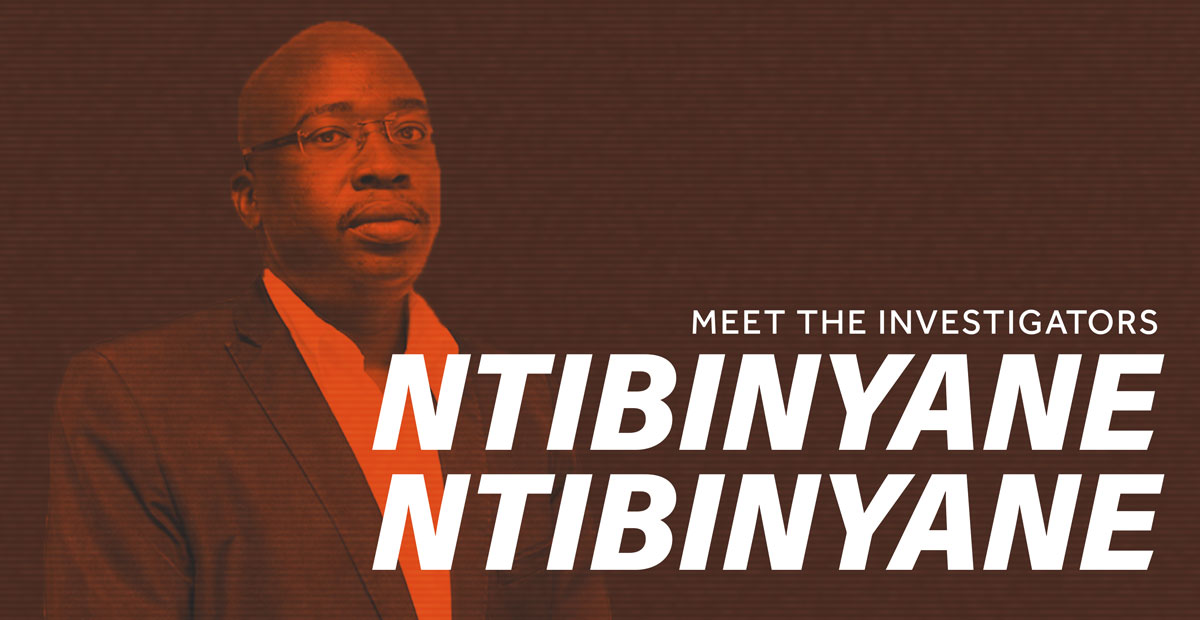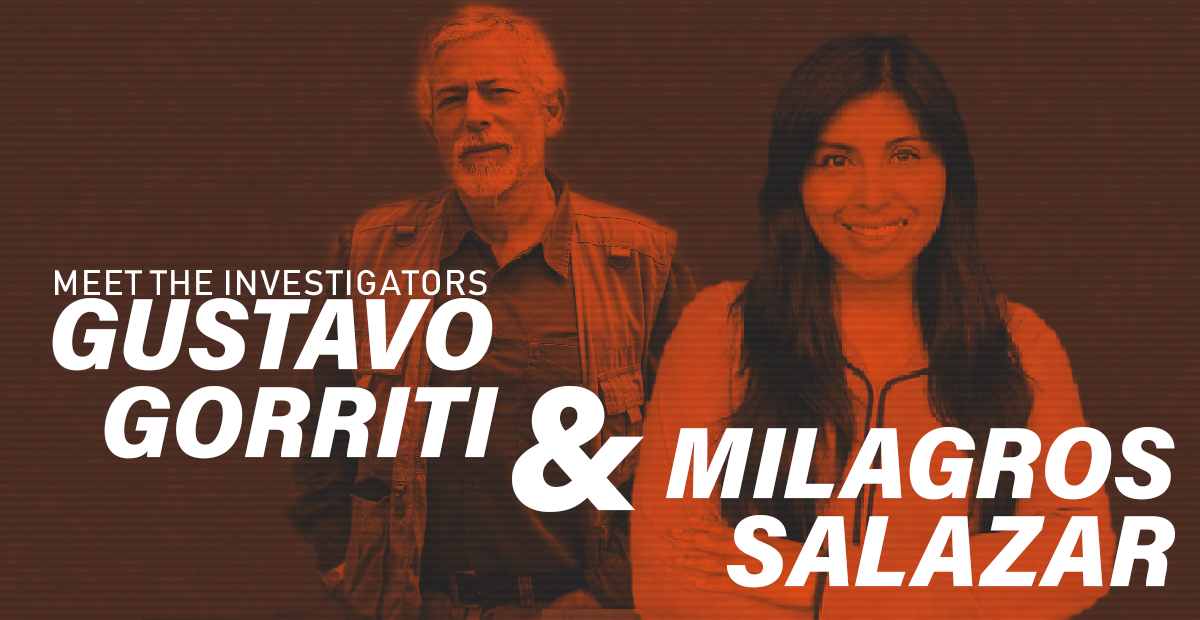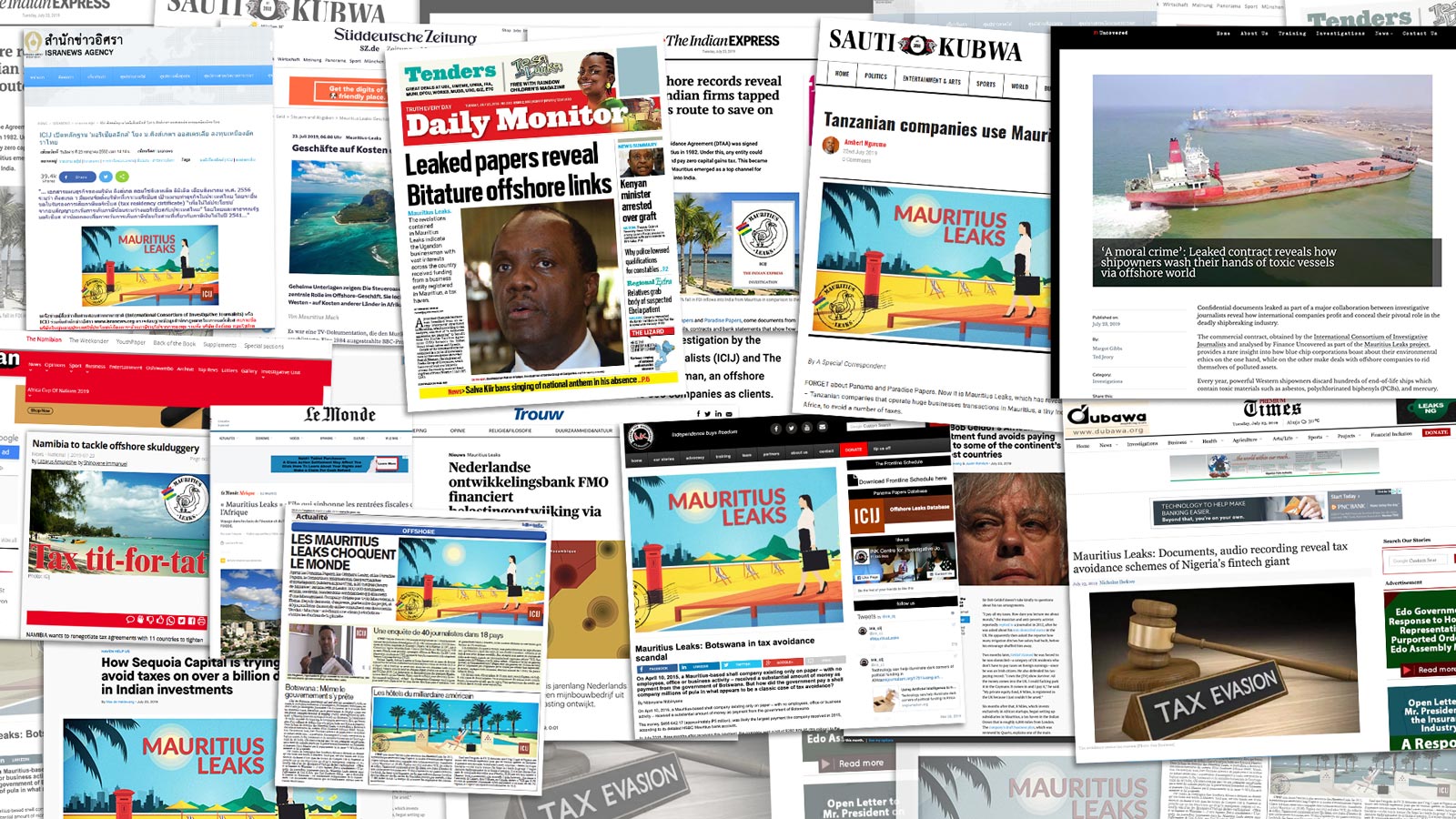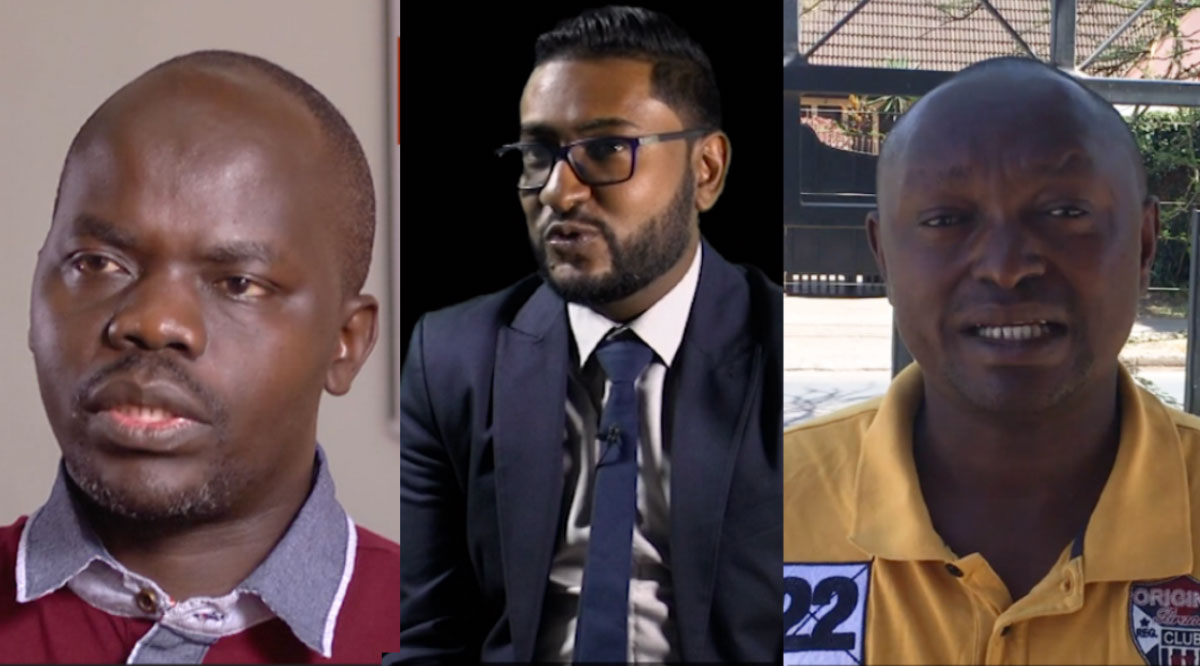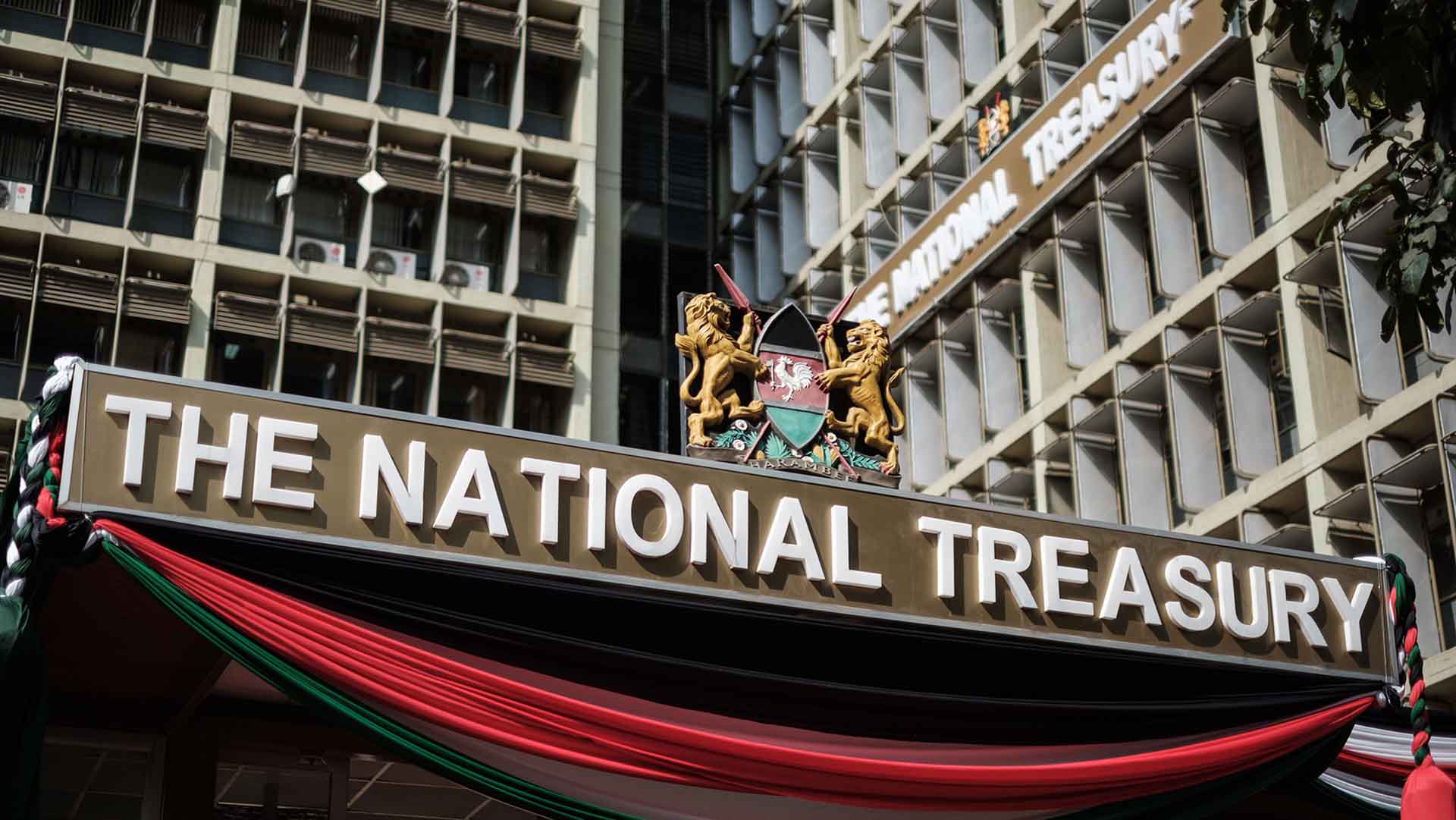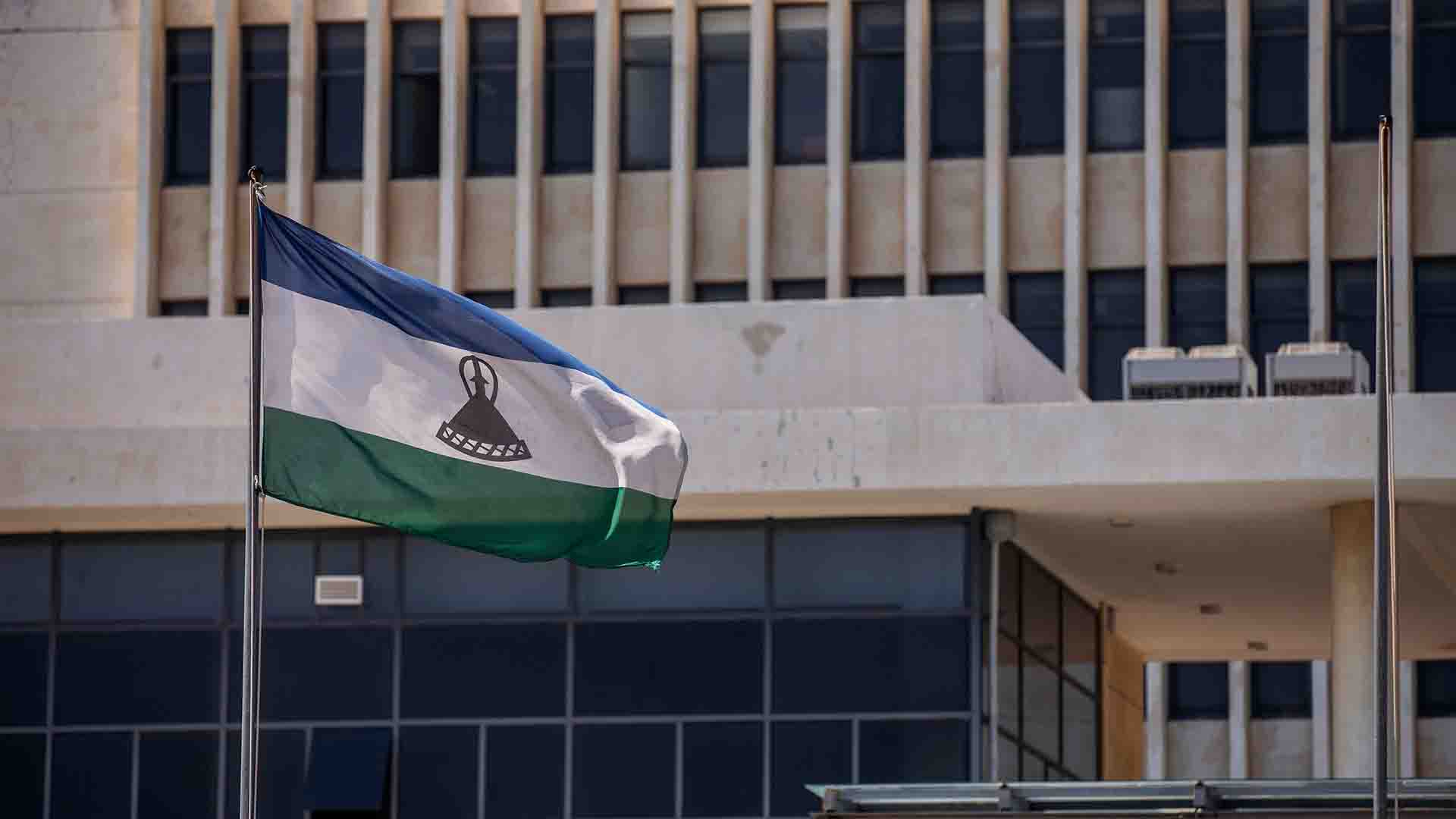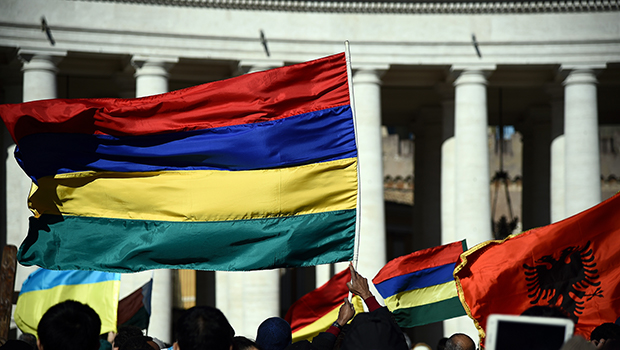The International Consortium of Investigative Journalists has hundreds of members across the world. Typically, these journalists are the best in their country and have won many national and global awards. Our monthly series, Meet the Investigators, highlights the work of these tireless journalists.
Ntibinyane Ntibinyane is the co-founder and managing editor of the INK Centre for Investigative Journalism based in Gaborone, Botswana.
On July 23, Ntibinyane joined more than 50 other reporters to launch Mauritius Leaks, a new ICIJ-led investigation that exposes corporate tax avoidance on a massive scale.
ICIJ spoke to Ntibinyane about his experience founding a nonprofit investigative news center and the challenges of investigating inside Botswana, “Africa’s success story.”
What issues are you eager to cover?
I am passionate about issues that seek to hold power and persons that wield power accountable. In my career I have covered issues that range from corruption, betrayal of public trust, illicit financial flows and human rights. My journalism, and that of INK, is informed by a deep commitment to arming the citizens with information to make informed decisions.
You recently spent time studying at Oxford with a project on nonprofit investigative journalism in Africa. What were your main takeaways?
What came out strongly from the study is that nonprofit investigative journalism is on the rise.
Investigative journalists frustrated by mainstream media organizations are setting up alternative media platforms to challenge and speak truth to power. In so many ways, and with limited resources, they are doing a splendid job. For example, the work done by nonprofit organizations such as Amabhungane in South Africa and Premium Times in Nigeria is commendable. They have been able to assert themselves as the leading nonprofit investigative news outlets on the continent.
Be that as it may, my study also found out that sustainability is the major issue for most nonprofit news outlets – big or small. Despite the impact and the amazing work they are doing, most are uncertain about the future. Most outlets rely heavily on one or two funders, and the fear is that should they pull the plug, most will close down. It must be noted that the outlets are not sitting on their laurels and waiting for Armageddon to happen. They are hard at work, finding ways to ensure sustainability.
Why did you launch INK Centre for Investigative Journalism?
INK is a project born out of frustration. And also, out of the love of investigative journalism.
We chose to walk away from mainstream media. We wanted to do investigative journalism in the public interest and without a profit motive.
When we started INK in 2015, the media in Botswana was going through financial difficulties never experienced before in this country. News organizations, in particular the newspapers, were experiencing acute decline in revenue, media houses were laying off media workers, journalism standards were falling, and interference by media owners was the order of the day. Something needed to be done urgently to address the crisis.
We chose to walk away from mainstream media to set up something that would truly uphold the standards of journalism. We wanted to do investigative journalism in the public interest and without a profit motive.
What is your advice to investigative journalists thinking of setting up a nonprofit news organization?
Do it, but before that count the costs. Ask yourself why you want to do it and whether you will be mentally and emotionally ready to face the challenges that come with running a nonprofit outlet.
After convincing yourself (and including those around you), you have to demonstrate to funders that you can be trusted and that what you are doing is of great public interest. There are so many donors out there with an interest in journalism and good governance. What they are looking for is a well thought out idea that will eventually improve the lives of the people. Convince them that your project deserves funding.
The other thing is don’t do it alone. Find like-minded journalists and build the project or the organization together. The most successful nonprofit news organizations are partnerships. If you want to earn the trust of the readers, do “slow journalism” and do it well. Readers are craving for well-done stories and they will definitely pay attention to your work.
Botswana is ranked as one of the world’s and one of Africa’s most peaceful countries. It doesn’t often jump to mind to foreigners as a place with a lot to investigate. What should people know about it?
Botswana is often referred to as “Africa’s success story” and “the shining example of democracy.” I differ completely with this characterization. Yes, from a distance, things aren’t that bad at all, but there is more to this than meets the eye. Botswana is one of the most unequal societies in the world. The gap between the rich and poor is very high. And mainly this is because of two things: skewed wealth distribution and, to a certain extent, corruption. After more than 50 years of independence, the country has failed to pass access to information legislation, and laws protecting whistleblowers. Politicians and senior government officials are not required by law to declare their assets and liabilities.
For the past 10 years [2008-2018] the country was technically under a dictatorship. The past president was intolerant of dissent and made it very clear that he abhorred critical voices, including the media. Of course, we were not hanged for daring to challenge the establishment, but journalists suffered a great deal. The government imposed advertising bans on private media, which forced news outlets to retrench staff.

You’ve done some powerful work on asylum-seekers in Botswana. What did you find? What tips would you offer to other journalists who are interested in reporting on asylum-seekers?
Our story exposed the government’s intolerance of asylum-seekers in particular from war-torn countries like the Democratic Republic of the Congo and Burundi.
The government of Botswana is very clear on this. They don’t want to accommodate asylum-seekers. When we worked on the story, we were shocked at the level of injustice meted out to helpless men and women in need of a place of refuge. We found out that because of this nationalist approach, more than 500 asylum-seekers (men, women and children) were kept in detention for more than two years alongside convicted criminals. Their crime was to seek asylum in the country.
For those interested in working on asylum-seeker/refugee stories, my advice is that you cannot drop from the air, interview a few people and jet off. You will miss the story completely. My team and I spent days with asylum-seekers in a refugee camp. The idea was to understand what they went through while in detention. The asylum-seekers were able to open up to us because they knew we were genuine in our approach. The stories were heartbreaking.
Read the story here.
You’ve just finished working on Mauritius Leaks. What did you find? What challenges did you face?
The Mauritius Leaks were interesting and very different from other offshore stories I have worked on in the past.
What made it interesting is mainly the involvement of Botswana government agencies in propping up shell companies to avoid tax. What I found out was that the government of Botswana paid a shell company incorporated in Mauritius, with no offices or staff members, thousands of dollars.
As a developing country, Botswana needs every dime to develop its people; losing tax revenue is not an option. Documents showed the company in question, Esri Southern Africa, planned to take advantage of the Botswana-Mauritius Double Tax Avoidance Agreement. The shell companies ended up paying close to nothing in taxes in Mauritius.
The astounding arrogance and hostility of the state this side of the world is breathtaking.
The most disappointing thing about working on a story in countries like Botswana is that officials seldom respond to questions. In the case of Mauritius Leaks, after more than four weeks of consistent nagging, the country’s tax agency, Botswana Unified Revenue Service, told me that they were not going to respond to our questions. The message was as clear as a whistle. The astounding arrogance and hostility of the state this side of the world is breathtaking.
You’ve worked on many offshore stories. What’s the best tip you have for a journalist who wants to report on tax havens, dark money and the offshore world?
Reporting on tax havens, and anything to do with the offshore world is not easy. I have struggled a great deal trying to understand some of these issues. One spends hours and days studying very complex documents and trying to reach a conclusion.
In most cases, it’s too complex for journalists. That is why we need to collaborate with tax experts, accountants and lawyers to get the full picture. You also need to reach out to other journalists. Some may know more than you and could help you understand issues.
